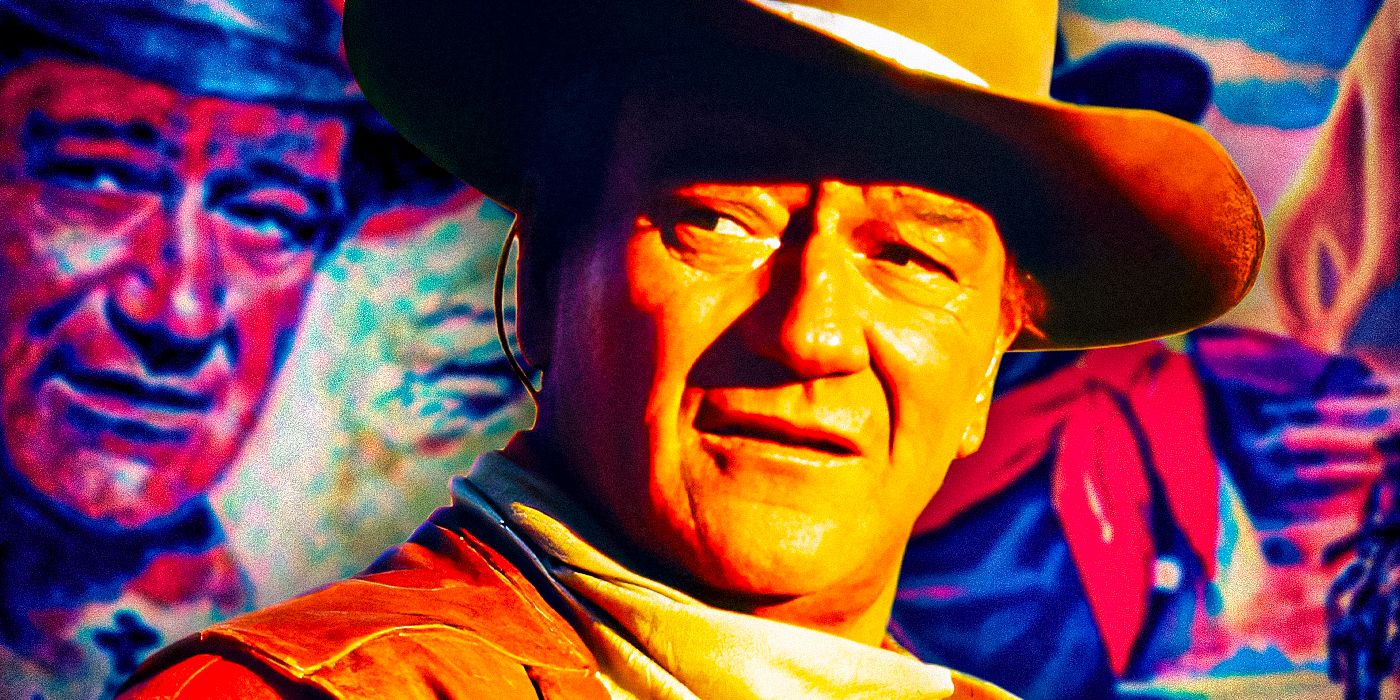Summary
- John Wayne's Western movies, while seen as iconic, faced backlash for problematic depictions of Native Americans and women.
- The lack of diversity, racial awareness, and complex history in Wayne's Western movies has received criticism in recent times.
- Wayne's conservative views influenced his movie choices, leading to support for staunchly conservative Western films like Rio Bravo.
The Western movies of John Wayne have included some of the greatest depictions of the Wild West ever produced, but rewatching them today, decades after they were first released, some harsh realities must be faced. Looking at Wayne’s Western output through a contemporary lens it’s impossible to ignore how problematic some of his movies were, as their depiction of indigenous communities, women, and even gun violence left a lot to be desired. While Wayne’s reputation as a legend of Western cinema was undeniable, it made sense that concepts around representation and diversity in the media have evolved over the years.
Wayne made a name for himself during Hollywood’s Golden Age and starred in dozens of Western movies, from low-budget B-movies to highly acclaimed classics through Wayne’s collaboration with the legendary filmmaker John Ford. While looking back on issues such as the representation of Native Americans in Wayne’s Western movies can be problematic, it’s so important to remember that they were boundary-pushing at the time and, in some instances, addressed the brutality of American imperialism. There were plenty of harsh realities when rewatching Wayne’s Western movies, but that does not change their status as highly beloved and important films.
10 The Depiction of Native Americans
The Searchers (1956)
The Searchers
The Searchers is a 1956 Western drama starring John Wayne. Wayne stars as Ethan Edwards, who goes searching for his missing niece after his brother's family is killed by the Comanche tribe. Helmed by director John Ford, The Searchers is now considered one of the greatest American Westerns ever made.
- Director
- John Ford
- Release Date
- March 13, 1956
- Cast
- John Wayne
- Runtime
- 119 minutes
Perhaps the single most controversial aspect of John Wayne’s old Western movies was the way they depicted the Native Americans and indigenous cultures in general. Full of outdated stereotypes and simplistic presentations of barbary, at their best Wayne’s Westerns were insensitive, but at their worst, they could be considered downright racist. Despite Wayne’s reputation as an Old Hollywood icon, the harsh reality was that Wayne’s racist past and statements have led to some controversial reappraisals in recent years.
Ford even later admitted in a 1964 interview that there was “merit to the charge that the Indian hasn't been portrayed accurately or fairly.
While the Western movies that Wayne made with the legendary filmmaking John Ford have gone down in cinematic history as some of the greatest movies ever produced, the depiction of Native Americans in films like The Searchers was problematic. Despite The Searchers attempting to address the brutality of white settlers directed at indigenous people, it was still a product of its time and lacked the racial nuances expected of today’s media. Ford even later admitted in a 1964 interview (via Studlar & Bernstein) that there was “merit to the charge that the Indian hasn't been portrayed accurately or fairly.”
9 Women’s Lack Of Agency
The Searchers (1956)
While there have been plenty of female Western heroes, the truth was that John Wayne Westerns rarely depicted women as anything more than a damsel in distress or as a one-dimensional character whose purpose was to prop up the male lead. Wayne was working during an era where women had far less agency than today and the importance of recognizing a woman's capabilities and equal status to a man was not often a priority in the Western film genre. Of course, there were occasions when this trope was subverted, like Maureen O’Hara in McLintock!, however, even that had sexist undertones.
The Searchers played into ideas about women’s lack of agency through its central premise of young woman being abducted by Comanche, which promoted a rescue mission by Wayne’s character Ethan Edwards. Simple narratives around women in need of a savior were common in the Western genre and often served as the basis of the entire adventure and plot. While there’s nothing inherently wrong with that, Wayne’s Westerns often failed to properly flesh out the female characters or their experiences of their own suffering.
8 A Lack Of Diversity and Racial Awareness
The Alamo (1960)
The Alamo (1960)
- Director
- John Wayne
- Release Date
- October 24, 1960
- Cast
- John Wayne , Richard Widmark , Laurence Harvey , Richard Boone , Frankie Avalon , Patrick Wayne , Linda Cristal
- Runtime
- 202 Minutes
The language used in John Wayne’s old Western movies could be considered quite shocking by today’s standards, of course, movies today feature a lot more profanity than they did during Wayne’s heyday, but the derogatory terms and flippant discrimination felt majorly outdated. Along with this, there was a major lack of diversity in Wayne’s Western movies which meant the main casts were overwhelmingly white, and when other races were depicted, it was normally stereotypically or offensively. However, these criticisms cannot be directed at Wayne alone, as these were issues across the board during his time in the spotlight.
A prime example of the lack of diversity and racial awareness in a Wayne Western was the 1960 epic historical film The Alamo, which depicted the 1836 Battle of Alamo, a brutal 13-day siege that saw hundreds killed and wounded. The Alamo featured an all-white main cast was largely overlooked the Tejano and Mexican American fighters' role in the battle. When Mexican soldiers were depicted, the lack of nuance around their characterization only served to reinforce racist stereotypes.



